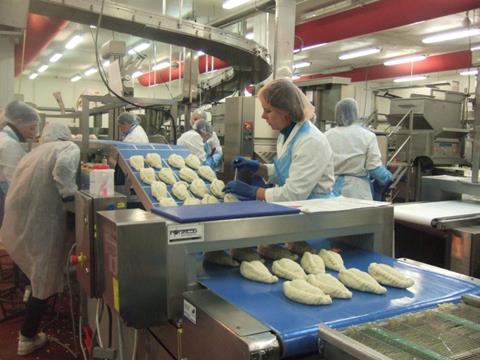
At PPMA 2017, stand A42, Fortress Technology will unveil how metal detection sensitivity accomplished by its multi-aperture innovation can deliver optimal food safety whilst helping to eradicate false product rejects.
Factory food waste is a huge issue. Yet, choices about production equipment, including metal detection and other quality control, can impact the 1.9 million tonnes* wasted annually by the UK food supply chain. WRAP estimates 1.1 million tonnes of this is avoidable, valuing it at £1.9 billion and attributing almost 90% to manufacturing.
Forming the centrepiece of the Fortress display is the first UK live demonstration of the company’s new waste-reducing, triple-lane, multi-aperture metal detector. Rather than channelling multiple lanes through a single metal detector, one Stealth metal detector is mounted across three conveyor lines. Each conveyor has its own BRC-approved reject system. This puts a stop to an entire row of good product being rejected and wasted if a contaminated product is identified on one line.
“In a 5-lane configuration this technically equates to an 400% reduction in false reject waste,” highlights Phil Brown, Fortress European Sales Director. Reliable industry estimates put the annual cost per production conveyor line of false rejects at up to £14,000, depending on the scale of the problem. Combining the physical waste with repeat machine stoppages, Phil asserts that this is a conservative figure.
Having a dedicated aperture on each lane, measuring 175mmx75mm, also means it can detect even smaller metal particles, of all types, down 0.7 mm ferrous, 0.7 mm non ferrous and 1.4 mm stainless steel. What’s more, the smaller apertures cope better with orientation and product effect, again reducing the likelihood of false product rejects whilst safeguarding a food manufacturers brand reputation.
Featuring Contact data software for remote interrogation, the multi-lane unit also optimises factory floor space. This was the case with a twin lane version recently installed by Dutch bakery Borgesius where the closeness of conveyors made it logistically impossible to insert two metal detectors.
Inspecting 3,600 loaves p/h, Borgesius Plant Manager Mr. Boneschansker comments: “Our twin-lane metal detector enables us to meet the stringent retailer Codes of Practice throughout Europe and have proven reliable and easy to operate.”
End-users can save up to 50% of the space required by individual metal detectors, plus around 17% of the installation cost. With just one system to maintain and manage, longer term, the multi-aperture device improves total cost of ownership (TCO) by over 65%, taking into account reduced maintenance and parts requirements.
Alongside the triple-lane system, Fortress will showcase three other key applications on its PPMA stand. They include a Stealth pipeline metal detector equipped with new Halo2 automatic test technology, an incline feed gravity metal detector, plus a horizontal Interceptor conveyor system that uses simultaneous multi-frequency technology to optimise sensitivity and inspection performance on notoriously difficult wet and conductive products like meat, dairy, ready meal and bakery items.
For a full demonstration, visit Fortress Technology, Stand A42.
More info:












